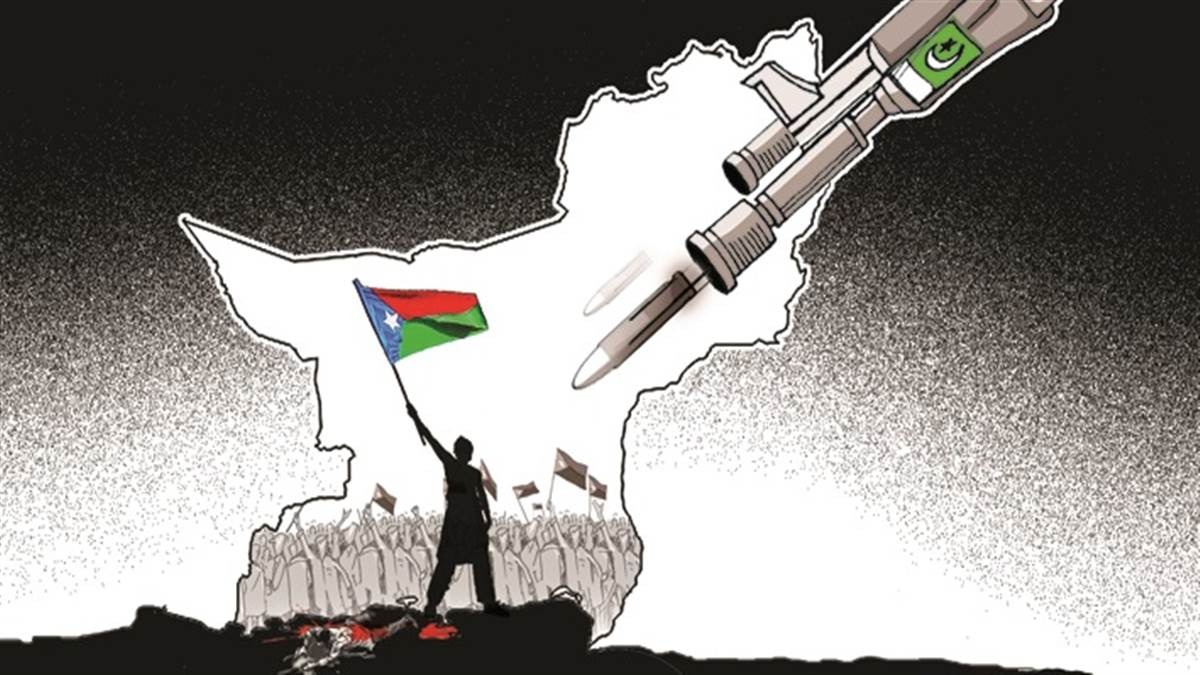Islamabad High Court Chief Justice Amer Farooq had said in court on 28 August that 'Pakistan is in a war-like situation. Everyone can see the situation in Balochistan.' The court made this comment while hearing a petition filed by Pakistan Tehreek-e-Insaf (PTI). PTI had filed this petition against the Islamabad administration which was obstructing the permission for the rally.
Farooq's remarks show that Pakistan is scared of attacks by Baloch insurgents, especially the Balochistan Liberation Army (BLA). A few days ago, in one such attack, more than 70 people, including security force personnel, were killed.
Statements by politicians and senior military officials about incidents of violent conflict are very common in Pakistan, but unless a hearing is related to such cases, nothing is heard by the judges. In such a situation, Farooq's comment reflects the frustration there. Although the political community keeps making claims and promises to end terrorism, it will not have any significant impact on the general perception. Pakistan claims that the Jammu and Kashmir issue is an unfinished agenda of partition. This is completely false because the Union Territories of Jammu and Kashmir and Ladakh are integral parts of the Union of India.
Pakistan has been trying to cover up the truth in this matter and the truth is that the issue of Balochistan is an unfinished chapter of Partition which has not reached its logical conclusion. If we turn the pages of history, we will see that when the British Parliament passed the Indian Independence Act in July 1947, there were 560 princely states. This Act divided British India into two countries, India and Pakistan.
They technically declared the said 560 princely states as 'independent'. The legal status also says the same. However, politically, the British also advised these princely states to merge with India or Pakistan depending on their status. In this process, these princely states became part of India and Pakistan.
In this context, if we look at today's Balochistan, it used to be the Kalat Riyasat, i.e. Kalat Riyasat. Kalat also had the same view that their relations with the British were not under the Indian princely system. That is why their case was different from other princely states and in this respect the test of princely states joining India or Pakistan after the end of British rule did not apply to them.
In fact, much before the partition, while presenting their case in the British court, they had said that their nature and character was different from other princely states and their lawyer was none other than Muhammad Ali Jinnah. Even after the formation of Pakistan, Kalat maintained its stance that it was an independent country. Till 1947, it also had an embassy in Karachi. At that time Karachi was the capital of Pakistan. The leaders of the Muslim League also promised Kalat in early August 1947 that it could remain independent.
However, after the creation of Pakistan, the Muslim League and Jinnah reneged on their promise and did not hesitate to use force to take over Kalat. As a result, the Nawab of Kalat had to accede to Pakistan in 1948. Thus, Balochistan became a Pakistani province, but the younger brother of the Nawab did not accept the proposal that Kalat should cease to exist and the Baloch people should become slaves of the Punjabis in Pakistan.
This sentiment is the core of Baloch nationalism which has sparked rebellion since 1948. The Pakistani army has always suppressed these sentiments very brutally. Baloch society has changed a lot in the last seven decades. In the past it was dominated by tribal chieftains. Tribal identities are still important but now a professional class of Baloch has also emerged. They have found new ways, both violent and non-violent, to express their rebellion against Punjabi-dominated Pakistan.
The Baloch people are very angry with the Pakistani Army since the murder of Bugti tribe chief Nawab Akbar Khan Bugti in 2006.
Bugti also played important roles in the Pakistani state establishment, but his widespread recognition remained as an iconic figure of the Baloch insurgency. After his assassination, the fire of the Baloch insurgency flared up so rapidly that the Pakistani army could not control it despite all efforts. It arrests suspects and tortures them in various ways who later 'disappear'. Pakistani courts have certainly given orders against such actions of the army, but this is nothing more than a formality. It is important to be aware of some aspects related to Balochistan. The Pakistani government is settling people from Khyber-Pakhtunkhwa and even people from Sindh and Punjab there.
As a result, the Baloch people are becoming a minority in their own province. Despite being rich in mineral resources and natural gas, Balochistan remains Pakistan's poorest province because the revenue generated here is spent elsewhere. Balochistan is an important coastal state where the Gwadar port is located. China owns this port under the China-Pakistan Economic Corridor or CPEC
has evolved
The Baloch people feel that the CPAC is not for their benefit but for the benefit of outsiders. Due to this anger, Baloch rebels killed the Punjabis visiting here. In response, the Pakistani army will start wiping out the Balochs by violating human rights. In this campaign, the government will also get support from the people of other states, but the torch of Baloch nationalism will not be extinguished because most Baloch do not consider themselves Pakistanis.
The more atrocities are committed against the Balochs, the more problems they will create for Pakistan. Pakistan is shedding the blood of innocent people like water by sending terrorists to Jammu and Kashmir and is doing the same in Balochistan. It would be better for them to find an acceptable solution keeping in mind the wishes of the Balochs. Otherwise the day is not far when Balochistan will slip out of Pakistan's hands and violence will spread to its other provinces as well.
 look news india
look news india
